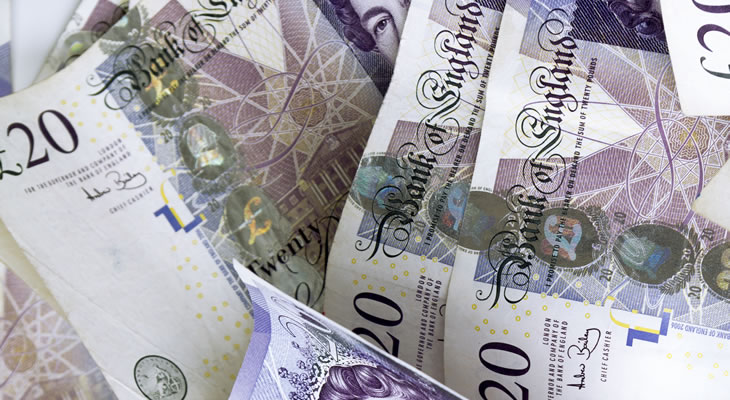Strong UK Retail Sales Rebound Fails to Boost Pound Danish Krone (GBP/DKK) Exchange Rate
A solid monthly uptick in UK retail sales was not enough to prevent the Pound Sterling to Danish Krone (GBP/DKK) exchange rate from losing its footing on Thursday.
While sales excluding auto fuel saw an increase of 1.6% in January Pound Sterling (GBP) failed to hold onto its initial rally for long, given lingering anxiety over the economic outlook.
Even if consumer spending continues to pick up over the course of the first quarter this may not be enough to prevent the wider UK economy from losing more of its growth momentum.
As Karen Johnson, head of retail and wholesale at Barclays Corporate Banking, cautioned:
‘January’s ONS figures offer a glimmer of hope that this pent up consumer demand could now slowly be being released, but the jury is still out on this at the moment.’
With the shadow of Brexit and the next round of UK-EU trade negotiations hanging over the economy the upside potential of GBP exchange rates looks set to remain muted for some time to come.
Danish Krone Shakes off February Consumer Confidence Dip
While February’s Danish consumer confidence index dipped from 4.5 to 3.3 this failed to drag the Danish Krone (DKK) down against its rivals.
The Danish Krone benefitted from the relative resilience of the Euro (EUR), insulating the currency from any anxiety over the domestic outlook.
Even so, with the global impact of the Covid-19 outbreak still unfolding the potential for a Danish slowdown remains.
Unless the economy can demonstrate greater signs of resilience in the weeks ahead this could limit the potential for Krone strength.
However, thanks to the Danish Krone’s close relationship with the Euro any fresh disappointment in Friday’s set of Eurozone manufacturing PMIs could see DKK exchange rates stumble.
GBP/DKK Exchange Rate Looks for Rallying Point on UK PMIs
Fresh losses could be in store for the GBP/DKK exchange rate ahead of the weekend, with markets bracing for the release of February’s flash UK manufacturing and services PMIs.
As the UK manufacturing sector looks set to slip below the neutral baseline of 50, dipping back into contraction territory, the appeal of the Pound could weaken on Friday.
However, as the service sector still accounts for nearly three quarters of the UK gross domestic product a stronger services PMI reading could eclipse the impact of any manufacturing weakness.
Forecasts point towards the services PMI clocking in at a respectable 53.4, indicating another month of solid expansion.
As long as investors see reason to bet that the service sector will drive an uptick in the first quarter gross domestic product the Pound is likely to see limited downside pressure, opening the door for a GBP/DKK exchange rate recovery.


Comments are closed.